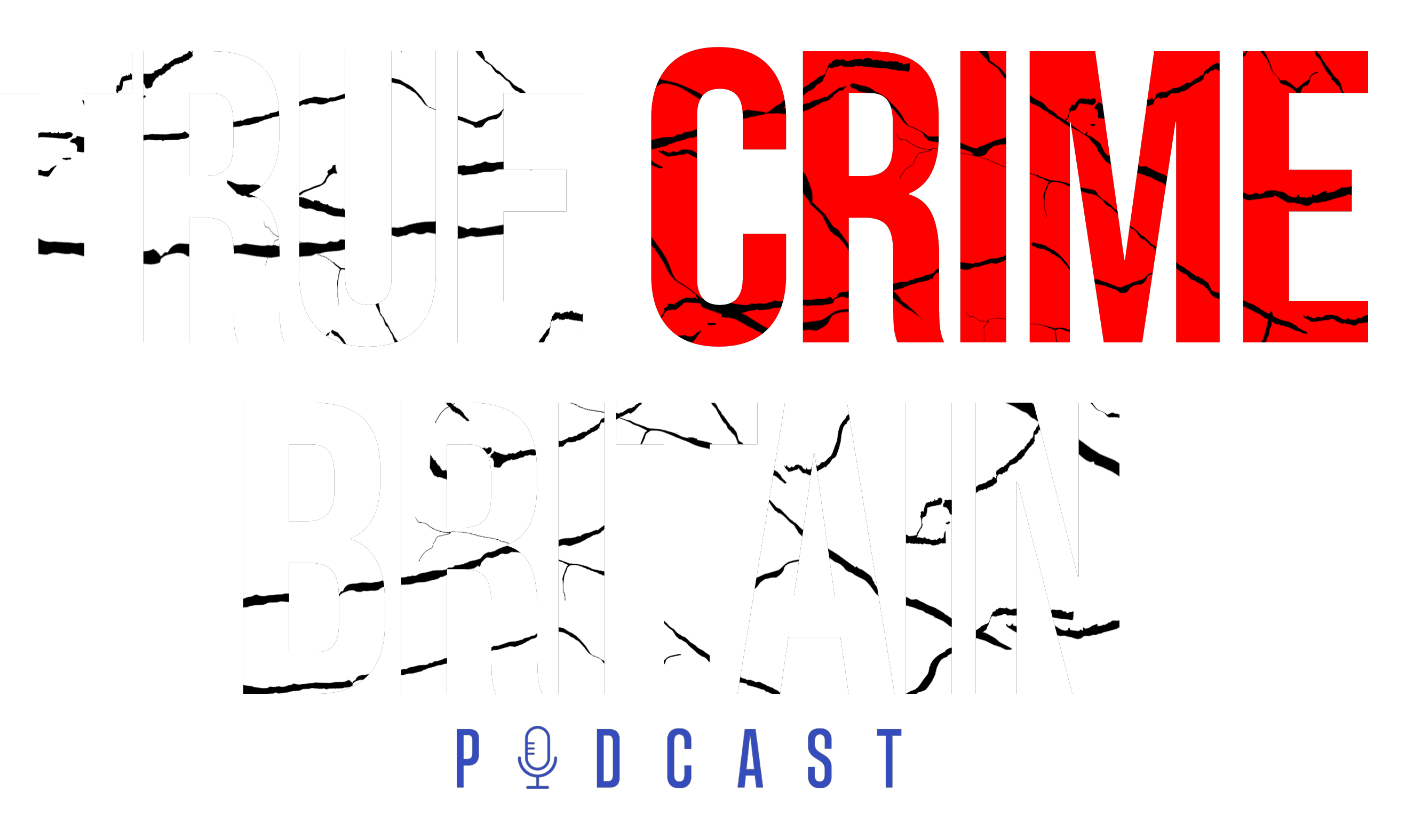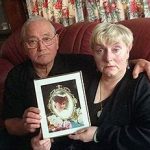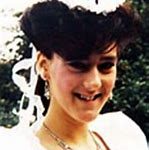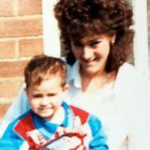
Episode 47 - The Murder of Julie Hogg
We all know the justice system exists to protect the public against criminals and their heinous crimes. But what if these laws and regulations suddenly contradict their purpose and work in favour of the offender?
Anyone can assume that based on a lack of evidence or proof of their innocence that an accused person is not guilty. But what if that same person eventually confesses to the crime – You would naturally assume that the criminal would be charged and sentenced appropriately right?
But in the case of Julie Hogg who was murdered in 1989, her killer was able to retain his freedom despite admitting what he had done. The horrible reason behind this is a law introduced in the 12th century – that of double jeopardy.
Julie’s parents started the fight for justice in the name of their loving daughter. Her mother stated, “I will never ever give up… never. To my dying day and as long as I am drawing breath, and as long as there is someone to listen, I will keep on going.” Eventually, it would take more than 15 years to change the “double jeopardy” law. But was it too late for their daughter’s killer?
Life of Julie Hogg
Julie Hogg was born on Wednesday the 22nd of February 1967. She was the first daughter to her father Charlie Ming, an English Chinese man, and her mother, Anne Ming, a Yorkshire woman. She was the middle child of three children with her older brother Gary born in 1965 and her younger sister Angela born in 1969.
From an early age, Julie was a calmer child than her siblings. She was introverted and kept to herself with only a handful of friends. Still, her loyal and bubbly personality made them friends for life, and she stayed in touch with them well into adulthood.
Ann Ming mentions in her book how they would often call Julie by the phrase “Wednesday’s child is full of woe,” as she was caring but every now and then she would become down with worry for others. Despite her timidness, Julie was not afraid to express and defend herself when she believed she was in the right. Julie was a very poised and fashionable young woman who would wear fashion statements that others were afraid to try.

For more horrifying true crime stories, please click below:
Archives
Before leaving the house, she made sure to look presentable but, inside of the house she was the complete opposite. She was quite untidy, and she rarely bothered to put her things back in their place or pick her stuff up off the floor.
At around the age of sixteen and right after leaving school, Julie met a fellow Billingham boy named Andrew Hogg. He was a gentle and charming man and Julie fell hard for him. In 1985 when Julie was 18 Andrew and Julie were married.
Soon after the wedding, they moved into a council house at 27 Grange Avenue a short 5-minute drive from Julie’s parent’s house.
Despite moving into their own home, Julie was fond of spending time at her parent’s house. She would drop by to tell them what she had been up to with her visits sometimes lasting just a few minutes before she would turn around and head home. Even with the regular visits, Julie would speak to her mother on the phone every day.
A year after they were married, Julie fell pregnant and 9 months later she gave birth to the couple’s first son, Kevin. But as they adjusted to the new little person in their lives, the cracks in their marriage began to show. They were fighting more regularly, and Julie’s parents noticed that they were drifting away from each other. Andrew had also been offered a job opportunity proposed by his uncle which would require a move to London.
Julie didn’t want to move as she wanted to stay close to her family and they both agreed that their relationship wasn’t worth saving so Andrew took the job and moved out. To pay the bills, Julie started a pizza delivery job in the evening at a shop called “Mr Macaroni.”
Despite the change in their daughter’s situation, Ann and Charlie were not worried about Julie as she seemed to take the separation well. She was an attentive mother and they saw her almost every day as they would look after Kevin during her shifts.
Fast forward to the autumn of 1989 when Kevin was three years old. Julie and Anne decided to go on a mother-daughter holiday to Blackpool. Just like they had on the family trips in their early years, the pair spent some of their time enjoying the rides and thrills offered by the carnivals. On this particular day, Julie wanted her fortune to be told so she visited a gypsy stall. According to Ann, Julie came back and told her that the woman had predicted Kevin would become a musician. But she told her mum that they couldn’t predict anything further because “it was as if I had no future.”
Those words would turn out to be a foreboding warning of the grim future that lay ahead of Julie.
Julie’s disappearance
Two months after the visit to Blackpool, Julie and Andrew agreed to legally officialize their separation. Andrew had already moved to London while Julie was due to pay a visit to the court hearing in Stockton on the morning of Thursday, November 16th, 1989. Julie was more nervous than usual, so Ann agreed to be there with her for moral support.
On the afternoon of November 15th, Ann and Julie discussed the plan for the next morning so it would go smoothly.
They decided that Ann would ring Julie at 7.30 to wake her up and by 8.30, she would drive down to Julie’s house to pick her up. If everything went to plan, they would arrive on time at the court for the ten o’clock hearing.
Ann reassured Julie multiple times that the hearing would go well. She even suggested that Julie could stay over at her parent’s house for the night. Julie declined the offer, a decision which still haunts Ann to this day.
“How many thousands of times have I wished that I had kept on nagging her to come and stay with us that night?”
That same evening, Ann left Julie’s house with Kevin so Julie could start her pizza delivery shifts. Little did she know that moment would be her last encounter with her daughter.
When Ann reached her home just a few minutes later, her phone rang. It was no surprise to see who was calling.
“‘It’s just me again, Mum. You won’t forget to ring me in the morning, early, will you?’”
The next morning Ann called her daughter on the dot at half past seven. There was no answer but like any person, Ann assumed that Julie must have been in a deep sleep after a tiresome shift.
Given how close Ann and Julie lived she decided to drive down to Julie’s place and wake her up in person. She knew Julie was anxious about the hearing and she didn’t want to increase her daughter’s stress by waking up late.
When she reached Julie’s place, the first thing she noticed was the curtains of the two-story house were tightly closed blocking the early sun. This confirmed her assumption that Julie had fallen into a deep sleep and hadn’t woken up yet. So, Ann knocked on Julie’s front door and called out for her daughter. She hoped to wake her up but there was still no answer.
There were no mobile phones in those days, so Ann drove to a nearby phone booth and rang Julie’s landline again. Yet again there was no answer.
Ann was confused, yes, her daughter could be a deep sleeper but there was no way she would have slept through her calls and knocks. There was simply no other option than that Julie wasn’t in her house. She considered the possibility that Julie had met up with someone and stayed over at their place. But Ann quickly rejected the thought as she knew Julie would have told her if her plans had changed and Julie knew she needed to be up early for her court hearing.
The more she thought about it, the more she could not produce any plausible reason for Julie to not be at home. Every minute that passed by felt like an hour while Ann kept trying to get Julie on the phone.
At some point, while Ann was knocking loudly on the door, a neighbour who had been awoken by the noise came out and spoke to Ann. He told her that he hadn’t heard Julie come home at one thirty in the morning like she normally did after a shift at the pizza shop. She was usually always dropped off by a co-worker and the neighbour would hear her entering the flat.
By then Ann was starting to worry. She knocked on the door of another neighbour named Kath who confirmed the same story. With that, Ann’s worry turned into panic.
She rang Julie’s brother Gary who arrived at the flat minutes later. Neither Ann nor Gary had a key to the flat, so they broke a kitchen window to gain entry to the house.
Gary climbed inside the window and opened the front door to allow his mother inside. There was no blood or horror scene for them to discover. The reality of what they saw was actually much more disturbing. The entire house was spotless, there was nothing on the floor and Julie’s bed was made.
Anybody close to Julie knew it she was not organized and rarely tidied up after herself. The bed was particularly telling, Julie would wake up and leave the bed covers unmade throughout the entire day and when Ann had left the flat the night before that is exactly how it had been.
In those moments, Ann was sure that something terrible had happened to her daughter. Gary and Ann phoned the police to report Julie missing. They expected their concerns would be taken seriously and that the police would organise for a search party to find Julie.
But what happened next would mark the first battle in a 15-year-long war to gain justice for Julie.
The police officer on the phone claimed that it was “too soon to report a person missing” and they were advised to return to their home and wait for Julie to turn up. Realising they were not going to get any help from the police, Ann and Gary covered the broken window and asked the neighbours to inform them if Julie returned.
As the clock ticked past 10 am with no calls or clues about Julie, Ann and Gary anxiously waited for any word about her whereabouts. That afternoon Charlie joined in the hunt and together they headed to the pizza shop where Julie worked to find out if they could shed any light on her movements the previous night.
But when they turned up at the pizza shop, they were given an unexpectedly rude welcome. When they asked the workers if they knew anything about where Julie might be the staff began yelling and telling the family to leave. The interaction quickly turned physical, and Gary and Charlie were arrested and forced to spend a night in a jail cell.
It turns out that Julie had had a physical relationship with a couple of the staff and they
took the questions as an accusation that they had been involved in her disappearance. When the air was cleared one of the men admitted that he had dropped Julie off the night before and had seen her use her key to enter her flat.
With that revelation, there were new questions added to the many unanswered ones.
For the next couple of days, Ann and Charlie repeatedly drove back and forth between the police station and their home. No matter the hours that had passed they kept getting the same answer. It was either, too early to declare Julie as a missing person or she must have met someone and slept at their place after a nightclub visit, or she ran off to London to see her ex-husband.
In an attempt to get the police to take their concerns seriously, Ann phoned everybody close to Julie including Andrew and the only friend she knew who lived in London. The only time Julie had gone on a trip by herself was to visit this friend, Margaret and even then, it was a huge challenge for her as she didn’t want to travel alone.
Ann knew in her heart of hearts that Julie simply wouldn’t have run out on her son or missed her court appearance without telling someone about her plans.
By Sunday morning, Julie had been missing for three days. That day, Ann and Charlie received alarming news from the neighbour Kath, whose son Mark had a police friend. On the same night that Julie went missing someone had anonymously notified the police of a woman being abducted. With that, Ann and Charlie decided they were going to make one final trip to the police station. She would not be leaving until her concerns were heard and her daughter was officially recorded as a missing person.
When she arrived at the station and told officers she knew about the tip off and they informed her that the lead had been false. This failed to placate Ann and she screamed in the middle of the station that she would not be dismissed. Her screams got the attention of
Inspector Geoff Lee.
He approached Ann and Charlie and listened to what they had to say. Finally, they got the response they were looking for “We are taking this seriously… we are going to send a team of forensic officers to the house tomorrow.”
The search for Julie begins.
On the 20th of November 1989, a team of five experienced forensic officers was assigned to search every corner of the three-bedroom house under the direction of Inspector Lee.
The family heard nothing for a couple of days until a week after Julie was last seen, they finally got a call from Inspector Lee. He wanted Ann and Angela to search through Julie’s clothes to see if anything was missing.
When Ann had last seen Julie on the afternoon of November 15th, she recalled that her daughter was wearing a black skirt and a peach-coloured blouse. She reported back to the officers that those were the only clothes missing. Ann continued to rummage through Julie’s belongings and found that all of her clothes, shoes, accessories, and makeup were left untouched and were located exactly where they should be.
After 5 long days, the forensic investigation of the house came to a halt.
With limited information on what had happened to cause Julie to disappear, Inspector Lee told the family “I can guarantee you that nothing untoward happened to her inside that house.” Time would reveal that he was far from correct but in the moment the family had no choice but to accept what the professionals were telling them.
The search had failed to turn up Julie’s keys. For that reason, officers changed the locks and set up an alarm system that would notify the police station if any tried to use her keys to access the flat.
The very next morning, Inspector Lee informed Ann and Charlie that someone had attempted to break through a front window into the flat. Apparently, the alarm had malfunctioned as there was no evidence of who this person could have been or their reasons for entering the house.
Charlie and Ann went to the flat themselves to check for any evidence but there was no sign of forced entry, even through the front window. They were understandably confused as to why they would be told someone had broken in when there was no indication that anyone had done so. They asked the police to re-check the house and in particular the loft but their request struck the wrong nerve of Inspector Lee, and he angrily told the family to leave them to do their job.
The days since Julie disappeared turned into weeks and then months. By then, Andrew had returned from London to look after 3-year-old Kevin who was understandably confused as to why his “mammy” wasn’t around anymore.
Without any other options, the family decided to make a public appeal for information about Julie’s whereabouts. Ann took Kevin with her to Tyne Tees Television hoping that if her daughter had run away like everyone kept suggesting, seeing her son’s innocent face would make her return. Ann hoped that she would be proven wrong and that her daughter had simply needed a break. But deep down she knew that Julie would never run away and leave her family behind. That was simply not the daughter she knew Julie to be.
Finding Julie’s body
With the certainty that she had run away, the police suggested three occasions that might prompt Julie to call them: Ann’s birthday on December 22nd, Christmas Day, or New Year’s Day 1990. But all three days came and went with no word from Julie. By the end of January, the police admitted that they had very little hope of Julie being found alive. There had been no tips or suggestions as to what had happened to her, and they relegated her case to the back of the drawer next to the other cold files.
Unlike the police, Julie’s family couldn’t move on with no answers however they had little Kevin to think of. Andrew had chosen to stay close to the family since Julie went missing to give his son some sense of normalcy. By the start of February 1990, he along with Ann and Charlie agreed it would be best if Andrew and Kevin moved into the house Julie had once lived in with his mum. They saw it as an opportunity to rebuild their lives and make life as normal as possible for young Kevin.
Ann went into Julie’s old flat to remove her daughter’s possessions while Andrew spent a few days cleaning. After one of these days, Andrew complained to Ann that there was a horrible smell coming from the bathroom. Ann shrugged it off knowing the house had been abandoned for three months and she advised him to pour some bleach down the drain.
A couple of days Ann paid a visit to see how Andrew had got on with cleaning out the house. Everything was turning out well except the smell from the bathroom which only got worse the longer she stayed in the house. Ann took it upon herself to investigate it as she wanted the house to be as nice as possible for her grandson to grow up in.
She noticed how the closer she got to the bathroom, the worse the smell was. She looked closely into every corner of the room and couldn’t see anything out of place except for some wall tiles Andrew had stripped off which needed replacing.
Ann decided to check over the bath thinking that it might be the drain that was causing the terrible smell. She knelt with one of her knees leaning against an unsteady bath panel. The panel sprung loose and immediately the horrific smell filled the room and her lungs.
Ann had been a nurse for twenty years and she identified the smell immediately. Despite knowing what it was, her brain tried to reject the idea that forming in her mind. There was simply no way that the forensic officers who had spent five days in the flat would not have found a body if there was one hidden in the bathroom.
Part of her wanted to put her mind at ease to prove that what she thought could be true was not. Ann pulled the panel back to find a body wrapped in a blanket.
To Ann’s misfortune, her motherly instincts were right from the moment she realized her daughter was missing. She was now left to comprehend the image and smell of Julie wrapped in a blanket, left to rot under her own bathtub for three months.
Julie’s autopsy would reveal she had been sexually assaulted and mutilated before being murdered. However, due to the advanced state of decomposition, Julie’s cause of death could not be clearly identified.
Who did it?
With the discovery of Julie’s body, her disappearance changed from a missing person case to a murder case. And thus began Ann and Charlie’s long fight for justice.
The police had ignored their cry for help countless times, they couldn’t find Julie’s body for three months and left her own mother to find it for herself. Understandably, finding her daughter’s body left Ann with PTSD and Charlie developed severe depression.
The monster who killed Julie did not just affect her, but the rest of the family as well. Ann struggled to block out the image of Julie wrapped in a blanket under her bathtub, and she would recall the smell at night. This clashed with Charlie’s attempts to push away any memories of Julie as his way of coping. Angela and Gary took a similar route to their father in terms of coping. Ann and Charlie still loved each other but their different coping mechanisms were pushing them apart.
But one thing they all agreed on what that the police owed it to them to find out who had done this to Julie.
A breakthrough in the case was when Derick Dobson was assigned as senior investigative officer in the case. Derick had a reputation as the “hunter” and the higher-ups determined that with his involvement they would avoid further humiliation for the police department which had let Julie and her family down so spectacularly.
Derick lived up to his reputation and just two weeks after finding Julie’s body, they made their first and only arrest in the case. Billy Dunlop.
Bill’s name wasn’t unfamiliar to the family. Billy used to play football with Andrew and used to hang out at Julie and Andrew’s place and in the neighbourhood. In fact, the last time Ann saw him was when she hysterically ran to Kath’s house after finding Julie’s body. Billy had been calmly sitting next to Mark, his best friend. Ann had no threatening impression of Billy and she was oblivious as to who was really sitting in front of her.
Unbeknownst to Ann, Billy had a long and violent history. He had been aggressive his whole life starting when he was a child and his father had taught him how to defend himself. Billy and his friends were known as “the crazy gang” and he had given himself the title of “the hard man.” The group took pride in terrorizing people and the police were aware of their violence on the streets. The group were also well known for its proclivity for hiring strippers to satisfy their dangerous sexual desires.
While Billy’s history was of serious concern, what evidence did the police have to make them think he participated in Julie’s murder?
When Julie’s house was searched after the police had decided that Julie had likely just run away, officers had spent some time making door-to-door inquiries to help find Julie. One particular inquiry stood out following the discovery of Julie’s body.
On the night of Julie’s murder, Billy was at a strip club and was drinking heavily. He was also getting violent and had knocked a man unconscious which caused him to get kicked out of the pub. Witnesses remember how he had wobbled into a door which ended up lacerating his eyebrow and causing blood to spray around the room.
Prior to Julie’s murder, Billy was residing at his friend Don’s apartment after a dispute with his then-girlfriend Jayne. Don’s apartment was on the road next to 27th Grange Avenue. But when the police declared that Julie was a missing person Billy moved back in with his girlfriend.
After the pub incident, Billy had gone to the hospital to get stitched up and had supposedly left to return to Don’s place. When the police first spoke to Don because of his apartment’s proximity to Julie’s flat they were merely enquiring about a missing person. Don had lied and said he was woken up when Billy came in from the hospital. When he looked at his video clock it was 2 o’clock in the morning.
But once Julie’s disappearance changed to murder Don had a different story to tell. Don admitted that Billy didn’t return to his place at 2 am and in fact, he had no idea when he had returned. This meant Billy had from 1.30 am until 7.30 am unaccounted for. The police believed he used this time to murder Julie and tidy up her place before Ann showed up at Julie’s doorstep just after 7.30 am that morning.
With this circumstantial evidence, the police gained a search warrant and looked more closely at Don’s apartment.
Don’s apartment was a treasure trove of evidence. This time forensic investigators looked under the floorboards and behind kitchen panels, so they didn’t miss anything like they had when they looked at Julie’s flat.
They found Julie’s keys under a floorboard in the kitchen and Billy’s fingerprints were all over the key fob. They also found fibres from a shirt that Billy was seen wearing the night of the pub incident which matched those found on the blanket Julie’s body had been wrapped in. The blanket also had semen on it which matched Billy’s DNA as well as human hairs that matched with his.
The police were confident that they not only got the guy but that they had clear and compelling evidence to convict him in a court of law. How wrong they would end up being.
The Failed Trials
18 months after Julie was murdered, in May 1991, Billy’s trial began. There were three jurors assigned to decide the verdict. Like any trial, one’s personal life becomes an open book for strangers to hear and judge. It wasn’t easy for Julie’s family to listen as they learnt about a side of Julie’s life of which they were not aware.
The defence was keen to use Julie’s sex life to insinuate that she had brought her murder upon herself because she was intimate with men. They told the court how as soon as her marriage started to fail, she quickly became involved in other relationships. It was revealed that Julie had a one-night stand with the man who would become her killer.
A friend of Julie’s testified that a few days prior to her passing, Billy met up with her and after that, Julie had a sudden change of personality. The friend didn’t think much of it until she learnt that Julie had been murdered.
Medical experts described how Julie’s cause of death was difficult to assess considering the extremely decayed state in which it was found. The only obvious damage to her body was to her vagina which had a significant tear caused by the insertion of a foreign object. There were no signs that she was beaten so the assumption was that her death was as a result of strangulation or asphyxiation.
When Billy’s father took to the stand, he had the audacity to deny his son’s crimes because he had taught Billy to kill someone by beating them up rather than choking them. As outrageous as his father was, Billy tried to prove his innocence by insisting that he was being framed and his fingerprints were planted onto the key fob.
Somehow despite what many believed was overwhelming and straightforward evidence implicating Billy, the jury in the trial could not reach a verdict. For that reason, Judge Swinton-Thomas ordered a re-trial.
After an agonizing wait, the second trial began in October 1991.
The second trial felt like a Deja vu of the first trial. The prosecution and the defence offered no new questions or theories. Once again, Julie ‘s family had to sit through the painful retelling of her murder and listen again as the defence painted her as a promiscuous woman who had brought her fate upon herself. But they attended the court dutifully every day believing that this time, their daughter would be given the justice she deserved.
But once again, they were devastated to hear that the jury couldn’t reach a verdict. It seemed that the jury could not get past the fact that Julie’s body was so decayed which meant that there was no clear determination of her cause of death.
During both trials, it was constantly reiterated how the police had failed to find the body on time. They had never checked the loft despite the outburst towards the family when they asked officers to recheck it. If they had checked it at the time the family asked, they would have found Julie’s diary, cash card, and watch which would have immediately indicated that she hadn’t run away. One of the forensic officers admitted on the stand that they just put their head through the loft hatch, lit up a matchstick, and used it to check around. He didn’t see anything so didn’t go in any further to check more thoroughly.
During the suspected break-in, the alarms hadn’t malfunctioned, but the police didn’t get there on time to find anybody. They actually took a police dog into the house and though it didn’t bark, it became restless and dragged the officer toward the bathroom. The dog was trained to bark at living bodies, not dead bodies. So, they concocted a plan to lie to Ann and Charlie and say that the alarm had malfunctioned, to cover up yet another mistake.
The second trial was crucial to convicting Billy because, at that time, the double jeopardy law existed. Under the law of double jeopardy, if Billy were acquitted, he could never be tried for this specific crime even if he confessed in the future.
With a hung jury in the second trial, Billy was acquitted and walked free. But he did not use this as some grand second opportunity at life. Over the coming years, he continued his violent acts towards other people and in particular his romantic partners. In January 1997, he threatened his girlfriend Jayne and her children’s lives and got a custodial sentence of a few short months.
After his release, he moved on to another woman named Donna. He was later arrested for the attempted murder of Donna and her friend Shaun. Billy had beaten Shaun enough to break his facial bones and had been stabbing Donna with an oven fork until a friend of theirs arrived. Since this happened in front of a witness, he was finally convicted of a crime and sentenced to seven years in jail.
While behind bars, Billy boasted to a jail guard about killing Julie. Billy was cocky and he was sure that he was protected under the double jeopardy law. He was right at least initially. But he didn’t count on Ann and Charlie’s perseverance in their fight for justice.
They took their fight to the highest courts in the country. No matter the setbacks they kept on fighting to turn over the law of double jeopardy. After 15 long years of fighting, in April 2006, the double jeopardy law was changed. Its terms now read that if compelling evidence is presented, the acquitted person can be tried again for the same case.
In May 2006, Billy Dunlop became the first acquitted person to be tried again for the same crime. This time, he was found guilty and sentenced to life in prison. He has never explained how he killed Julie or why.
In more recent years, Billy’s name has surfaced again when he became eligible for parole after serving his minimum term of 15 years. Just when Julie’s family thought that they had finally brought justice to their daughter and sister, will the justice system fail them again?
References:
https://www.the-sun.com/news/7328407/who-is-billy-dunlop-killer/
http://news.bbc.co.uk/1/hi/england/tees/5144502.stm
https://www.bbc.com/news/uk-england-tees-63269004
https://www.youtube.com/watch?v=v4pTar8VJeY
https://www.thesun.co.uk/news/10076409/what-happened-to-julie-hogg/






